
Everything Important you Need to Know about Going Wild Camping
*This post may contain affiliate links* or products that have been sent to me for review. You can find out more in my Privacy and Cookie Policy*
This is a collaborative post
Wild camping was a term rarely heard of until a few years back. It’s now one of my favourite outdoor activities. It’s easy, free and not too harsh. You can make for real connection with nature. This guide to wild camping UK will cover all you need to know about etiquette, gear, and how to get started.
These tips will help you to be calmer about it. There is no reason why your night outside shouldn’t be enjoyable and hassle-free if you have a good understanding of UK wild camping practices.
WHAT IS WILD CAMPING, AND WHY IS IT IMPORTANT?

Wild camping means camping in an area that isn’t on an established camping site.
Sometimes, a wild camp is necessary. If you’re on a multi-day hike and are far from accommodation options and campsites, then a wild camp may be necessary.
Wild camping is a popular choice because it enhances the outdoor experience. It’s nice to wake up in the middle of nature. You can also sleep under the stars, miles away from any light source.
Wild camping can be rather complicated because you have to bring all your gear. You will also have to deal with the fact that there are no home conveniences, such as taps, showers, or toilets. You might also feel like you could be caught in the middle of nowhere.
It’s easy to make it stress-free by choosing the right gear and learning the basics of wild camping. If you want to space yourself the harsh nature and you are on a tight budget, you can easily get a used motorhome by Oaktree Motorhomes. But if you are an adventure lover, then you will definitely go for the harder option. And so…
WILD CAMPING UK RULES

Only Dartmoor and Scotland are the only legal places where you can wild camp legally in the UK. Wild camping is allowed in the UK, provided you adhere to these rules.
- If the land is not private or there are farms/houses nearby, or if you have to jump a fence (unless permission is granted first), don’t camp.
- Be quiet and respectful.
- Never stay longer than one night, and pitch late.
- Don’t light any fires.
You cannot camp in certain protected areas. These areas are often marked with no camping signs. Wild camping is not permitted in New Forest, which has rangers that patrol the area at night.
There are two types of wild camping.
Camping in large National Parks like the Lake District, Brecon Beacons and Peak District is the first. Wild camping in these areas is so common that it’s not unusual to do so. As long as you stick to the above rules, you won’t be bothered.
This is the second type of wild camping, which is considered more of a stealth camp. This includes camping in parks or natural areas that are close to towns and villages or smaller, less rural parks such as the South Downs Way. This is a more discreet camping option, and you should not be seen from any other path.
Stealth camping is just as enjoyable and can give you a chance to spend some time in the great outdoors right at your doorstep. This requires some confidence, but in return, it can lead to a whole new world full of adventure.
I have wild camped in parks, on rugby pitches, and even in London without any disturbances!
WHAT HAPPENS IF I GET CAUGHT?

Wild camping near a village or town is acceptable. Landowners may ask you to leave at some point, though.
It was heard of people being moved around in the middle of the night. It’s all part and parcel of the adventure!
Try to talk to the person, who is most likely the landowner, and assure them that you won’t leave any unwanted trace. You can move on if they insist – which is all right – and you will eventually find another spot.
It’s not something to be concerned about.
Think about what you would do if you saw a tent while walking through the woods.
Although it may feel strange at first, it will become easier and more comfortable as you discover that you can find a spot anywhere.
WHERE TO GO WILD CAMPING IN THE UK
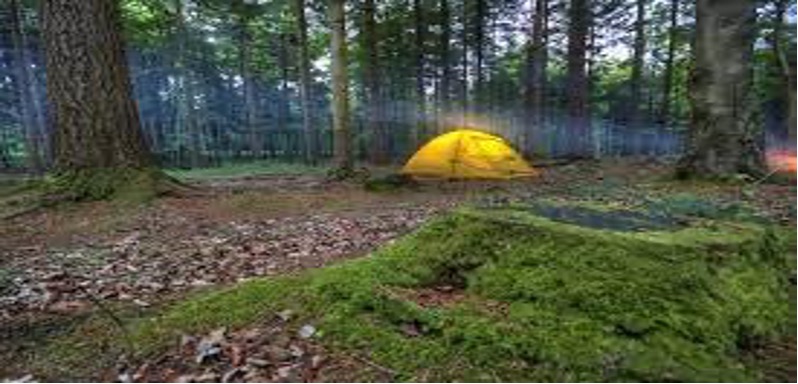
You don’t have to plan too far ahead for wild camping in the major National Parks.
Google maps can be used to find green spaces and woodlands near towns or villages. A recce is a good idea if you don’t have any knowledge of the area. You should make sure there aren’t any fences or that you’re in a quiet area where you won’t be disturbed.
To help you get started, We have written some detailed area-specific guides:
- Wild camping Snowdonia
- Guide to Wild Camping Lake District
- Wild camping the Brecon Beacons
- Wild camping Peak District
You can find more ideas and suggestions in Phoebe’s Smiths Britain’s Best Small Hill’s.
Use a tent vs using a bivvy bag.
There are two ways to wild camp. First, you can use a tent. The tent should be discrete and small (preferably a colour that doesn’t make you stand out and not very big.
You can also use a bivvy bag. You can use a bivvy bag as a waterproof bag to protect your sleeping bag. It can be laid down in a quiet place, and you can sleep under the stars without any cover.
You can also check out my bivvy bags camping guide.
This short film may help you decide if the tent or bivvy bag is best for you.
HOW TO CHOOSE THE WILD CAMPING SPOT
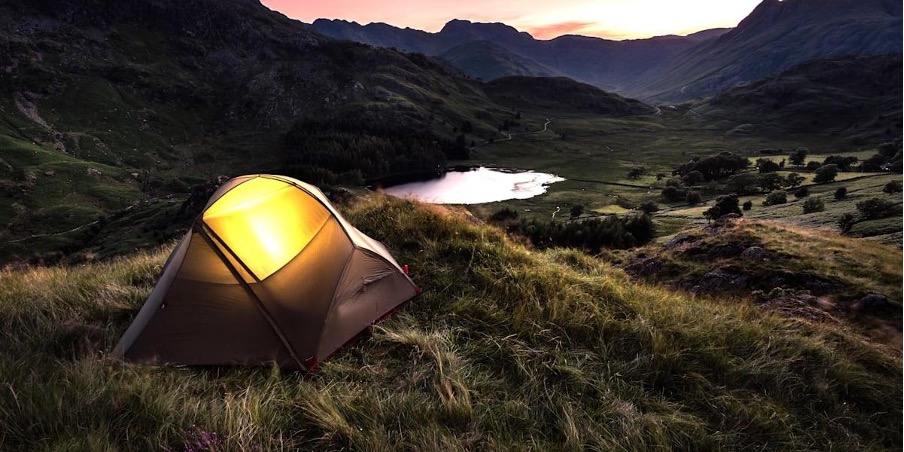
The following are the things I look for when I search for wild camping spots:
- A flat spot is worse than sleeping on a slope.
- If you live in a rural area, it is important to be quiet and away from the public eye (especially important).
- Large enough to accommodate my tent or bivvy bag
- Not in the middle of any path or space where people will be walking.
- Choose soft underground (not too much rock or roots).
- Not at the bottom of a slope that may flood if there is rain
WILD CAMPING EQUIPMENT: WHAT TO PACK
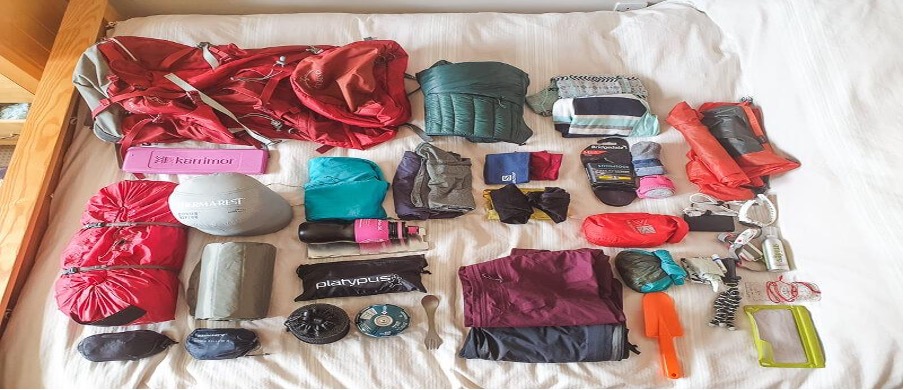
Consider your wild camping gear, and make sure you have enough warm clothing and waterproofs for when it rains.
It is often overlooked how cold camping can be. Layers, warm clothes and a warm hat are essential for camping. It will help you to keep the heat in. You can only warm yourself up if you move your body to produce heat once you’re cold.
Other important pieces of equipment for wild camping include:
Tent
MSR Hubba is expensive, but it is my favourite tent. A Vango Nevis 200 I’ve used this tent in severe storms, and it never lets in water.
Or
BIVVY bag
A Survival Bag is a great alternative to a bivvy bag. They can only be used for one night because they retain a lot of condensation. A Mountain Warehouse bivvy bag is a great option for an easy but useful piece of kit.
Roll mat
A Thermarest Neo Air is an option, but a roll mat can also work. You can even go without one if you sleep on grass or woodland ground, especially if you do so for an extended period of time.
Sleeping bag
The Tundra Pure & Dry 0 sleeping bag is extremely warm and light. A good quality sleeping bag is essential. You don’t need to spend a lot of money at first. You can get through summer nights with a basic Vango sleep bag is another option you might need.
Other things that you will need:
– Headtorch for when you need to pee at night. You can also use your smartphone’s torchlight.
Other things you will definitely need
– Water bottle
– Food and snacks
– A Rucksack to transport your gear
– Phone (as an emergency precaution, even if you do not have the intention to use it).
– Energy Bank to charge your phone as a backup battery
A book, journal, and small pillow are all luxury items you might consider, especially if your bag isn’t too big.
Make it cosy
The best way to enjoy your overnight camp is to be warm and well-fed.
It is simple to ensure that your body is well-fed. It can be difficult to stay warm, however.
A comfortable pillow is second to warmth, and food of importance. That is why I always bring my travel pillow with me to ensure a good night’s sleep.
ENSURING SAFETY WHEN WILD CAMPING
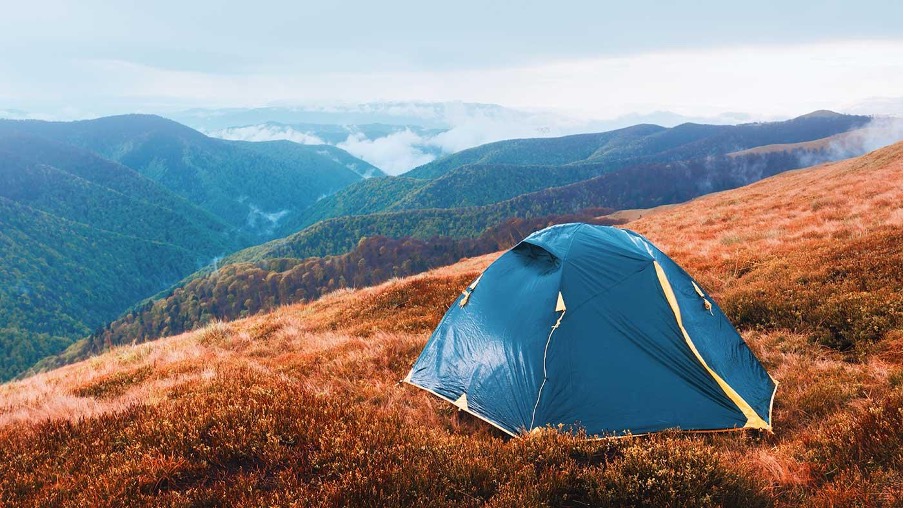
Like all adventures, tell your partner what you plan to do and where you want to go.
Wild camping is safe. There is a chance of branches falling from trees if you are camping under trees, especially during storms or high winds.
Wet or cold weather, wet limbs and torso can quickly lead to hypothermia.
If you are a person who is able to go out on your own, logic will tell you that it is fine. You could always go with a friend if this bothers you. For mutual support, you could camp together. It can be comforting to know that someone is nearby.
LEAVE NO TRACE AFTER YOU
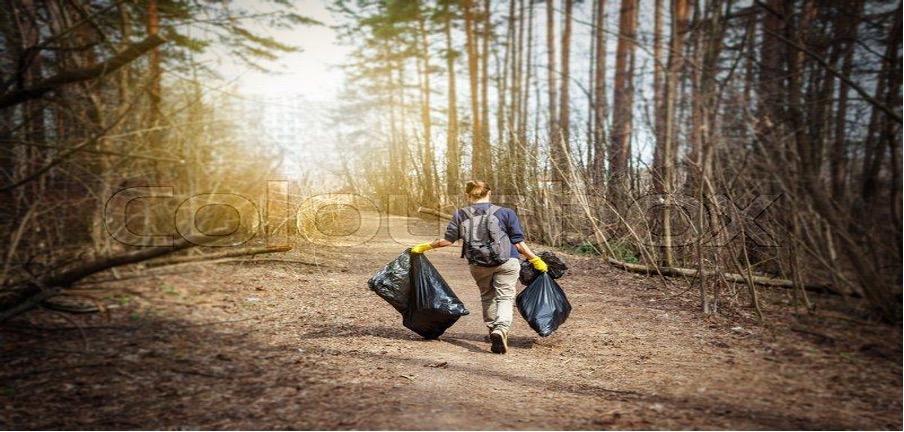
These simple rules will ensure that you cause as little damage to the natural environment as possible when wild camping.
- Choose the least disruptive spot (moving stones and rocks) while not trampling on plants or plans.
- Get rid of all your trash.
- If you decide to cook, don’t light any fires. Instead, use a camping stove.
- Please refer to the following guidelines for toileting.
- Do not use soaps in rivers or streams or pollute the environment with un-eco-friendly products.
- Be quiet
WILD CAMPING: HOW DO YOU GET TO THE TOILET?
This is a major concern for first-time wild campers, but once you have tried it several times, it’s easy to get used to it.
You can pick a bush to keep you from being seen by others.
You will need a camping shovel to make a hole in your ground for your poop. You should make sure that the hole is not less than 15cm in-depth and at least 30m away from any water source so you don’t accidentally contaminate the water.
To clean your hands afterwards, bring a hand sanitiser.
You must take all tissue paper and sanitary products with you. This is easiest to do by using eco nappies/poo bags.
AS A FINAL: TOP TIPS FOR WILD CAMPING UK
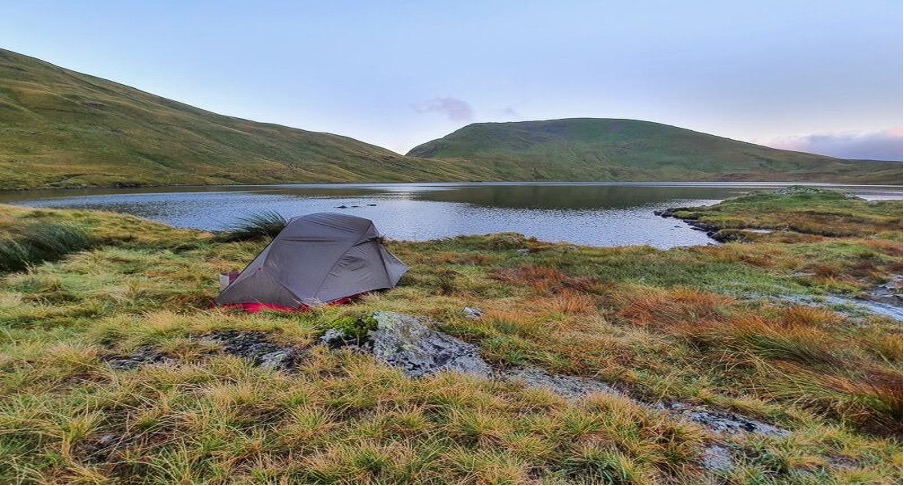
You are now ready to go into the UK for a wild camping trip! But also remember
- If you’re going wild camping for the first time, it is a good idea to have a plan B. If you need to get out of your vehicle in the middle or late at night, have a plan B!
- You don’t want to go alone if you are afraid. You can also post to various social media groups. They organise wild camping trips.
- You can opt for a bivvy bag if you are looking to experience something even wilder.
- You must set a date and then commit to it. The hardest camp is the first one.





